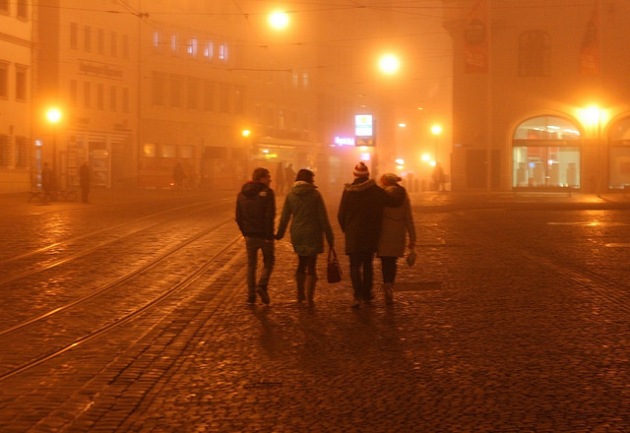Did you ever grow tomatoes from seed? The little green shoot pops through the soil; the vine grows and you tie it to a supporting stick; the yellow flowers bloom and form green bulbs that form green tomatoes (no yellow flowers, no tomatoes), at last the big red tomatoes. We love them. Henry planted seeds for eight or ten tomato plants every year. One summer the weather was perfect for a plentiful crop from our little garden. On a beautiful morning I was up stairs with all the window open, “watching” little William and Amy by listening to their happy play while I did regular housekeeping duties. Suddenly they are coming up stairs, right to me, ready to perform their rehearsed routine. Simultaneously: “We love you, mommy” and they present my largest tray, which happened to have sides, full of a heap of ALL of the yellow tomato flowers. What could I say to those faces so radiant with love? “I love you, too.” Clueless, absolutely clueless, but full of love.
I appreciate today’s text all the more because of that tomato flower story in my life.
Jesus gathers the disciples he loves, all children of God just as we are, friends who love him. They struggle to understand, but they do love him. He assures them of dwelling places with the Father; that he will take them there; that they know the Father because they know him. Their clueless response frustrates him, but he gathers them into his loving, forgiving heart. He tells them about the life they are to live now: “do the works that I do, in fact, greater works than these.” Their work is to go out into the community, spreading that message of loving, healing forgiveness to the ends of the earth, and in every age. That’s us, folks, this is the work we are to do. Forgiveness is mandatory if we want to connect with God in one another.
Henri Nouwen says that in her compassion God links her children to herself, becoming dependent upon her children, whom she has gifted with freedom. As such, how can we be an effective Christian community that continues Jesus’ work? Nouwen offers a process which is tough but simple, IF you follow directions. First step, fall in love with God. Be totally open to receiving God’s love. Throw the door to your heart and soul wide open, hinges and all. Fall back; let God fill you. God loves to love you; that’s what God does. This is God’s work, all by himself/herself. Welcome it; that’s your part.
Secondly, you are required to sincerely pray for and wish for the best for those who hurt you. Test that love and your sense of community with that line Jesus taught us: “as we forgive those who trespass against us”. How are you doing? Is that the line you say the fastest?
Nouwen describes forgiveness meaning that I am continually willing to forgive the other person for not being God — for not fulfilling my needs, my delight. I too must ask forgiveness for not being able to fulfill the needs or delights of other people. I forgive you since you can love me only in a limited way. I can love you only in a limited way.
Now you are prepared to participate in the two required elements in a common, ordinary Christian community, forgiveness and celebration. Forgiveness? Check. Ordinary people? Check. Ordinary day? Check. Really?
Let me tell a story on myself. Two friends of mine from Boston flew here to spend a few days with me before we would drive to the Y of the Rockies for a national ECC retreat. We enjoy each other; we hold a lot in common; we truly looked forward to all this time together. While we were packing the car for the drive to Denver, my one friend says, “I can’t wait to see Kansas. I really want to see Kansas.” KANSAS? The woman lives in the midst of renowned universities, major national historic sites, highly praised museums, and I happen to know that she loves to watch the rowers (the crew teams) on the St. Charles River! Faster than a blink, the other one says, “That’s when I sleep in the back seat.” Of course, I am the driver as we cross the Kansas state line so my dear friend can strain forward to look out the left window and over to the right window. OOing and AHing in amazement and appreciation. She goes on and on; I drive mile after flat mile. I am soooo frustrated, annoyed, and aggravated that I say, “You’ve seen Kansas now. Feel free to put your seat back, shut your eyes, get some rest.” Silence. Then she says, in her usual gentle voice, “You know the Native American people say that as you treat your land, so you will treat your people.” I have hurt her. Mea culpa. I say, “I’m sorry.”
Forgiveness becomes the word for love in the human context. Not one of us has two identical eye lashes, or two identical toes. How can we expect one another to have the same preferences, opinions, mannerisms, etc.?
God teaches us diversity in harmony. Indeed, forgiveness is mandated if we want to connect with God in one another.
When we gather around the Table to prepare to receive the Eucharist, let us be especially mindful of that moment in prayer when we commit to “forgive those who trespass against us.” Amen.
Sts. Clare & Francis
Fifth Sunday of Easter
Saturday, May 17, 2014
Homily by Kay Schmitt
Photo by Tara Severns on flickr.com


